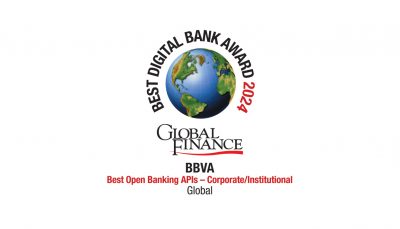“Banks and Fintech partners should work together to complement each other’s strengths and capabilities to drive innovative and customer centric solutions,” said Jorge Sun, CEO and Co-Founder of LendingFront. In his opinion, it is a win-win combination driven by better efficiencies: “By working with Fintech partners, banks can take advantage of the rapid development cycles and have access to new data and technologies that Fintech partners enjoy”. Sasha Orloff, CEO of LendUp, agreed: “Partnering is a great way to get the digital expertise in-house from web, mobile, product, underwriting and the unique complexities of the digital world.”
Hector Arias, from BBVA Open Platform, also pointed out that “banks know very well compliance and risk, that are capabilities so difficult to acquire by small companies. Fintech offers new ideas and the ability to build faster and cheaper, so the cooperation between banks and Fintech allow opportunities to experiment new ideas in the industry.”
Customers, too, will benefit from these alliances. “The online lending industry is a perfect case study for how bank/fintech partnerships can deliver direct benefits to customers. From consumer to business loans, every type of customer is able to gain faster and easier access to loans of all sizes across a vaster spectrum of creditworthiness”, said Evan Singer, CEO of SmartBIz.
Wallace Young, from the Federal Reserve Bank of San Francisco, stressed the importance of understanding the regulatory environment and recommends the ‘Guidance on managing outsourcing risks’ issued by the Federal Reserve. “It walks through the steps that banks should take to measure, monitor, and control these risks”, said Young, adding that “Fintech companies that are well-versed with these expectations will be better-positioned to provide the type of data and other information that a bank would need if it were to enter into the partnership”.
Richard Aberman, from WePay, went further: “Banks should develop digital strategies that contemplate the needs of developers.” According to the co-founder and Chief Product Officer of the payment service provider, “in the simplest terms: APIs that expose core banking functions, with guardrails that protect the various parties from risk and regulatory exposure, without creating insurmountable barriers to working together.” And for all this, “the key is open and transparent communication,” summed up Filip Verley, senior advisor of One World Identity.
And what are the greatest benefits of open APIs? “Open APIs promote innovation, collaboration, and specialization,” said Aberman. Not only that, they also boost the ability to build faster and cheaper. In Arias words: “Even the smaller startup can try the sandbox and apply for production access once is ready to launch real finance products into the market.”
Susan French, from Wise Owl Advisors, agreed: “By creating a robust ecosystem of open APIs, we can enable those innovators – whether they are in a big financial institution or in a garage – to design, build, and bring those great ideas to market faster and more economically than ever before”.
The next big thing in the sector
Time now to look into the future. What will be the next big thing in the sector? “I predict we will see a lot more partnerships” between banks and Fintechs, said Orloff. Sun, from LendingFront, thinks “the next big thing in Fintech is seamless cross company connectivity among a set of networked institutions for a set of shared products and services,” in line with Aberman, who also bets on “financial services delivered through online platforms and marketplaces.”
For Verley, from One World Identity, identity will be the key, “the creation, the maintenance, the protection and the security of it.” And BBVA’s Arias points high: “I think of a massive retail bank getting a million customers in months, and then getting a 25% market share in 2 years.”
Artificial Intelligence will make a difference too. Evan Singer explains they are already working on that line: “Right now, SmartBiz is using AI in the origination process to provide greater efficiency, ultimately decreasing the time it takes to underwrite and originate loans and improving our customers’ experiences.”
And this trend can only grow, according to Susan French, from Wise Owl Advisors: “I believe we will soon see AI-enabled products with huge improvements in personalization and customization as well as the ability to anticipate and then automatically fulfill the needs of customers in ways not possible even a few years ago.”
*This article is one in a series from BBVA about the latest in Fintech and banking.
You can read more here


























